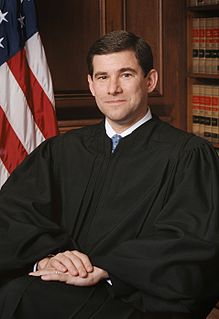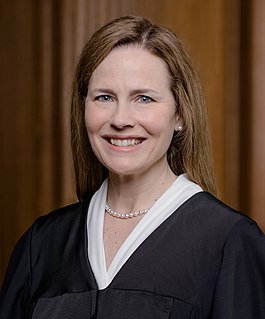A Quote by William H. Pryor
Faith properly informs the religious lawyer or judge, and morality is not in tension with fidelity to the law.
Related Quotes
People must be confident that a judge's decisions are determined by the law and only the law. He must be faithful to the Constitution and statutes passed by Congress. Fidelity to the Constitution and the law has been the cornerstone of my life and the hallmark of the kind of judge I have tried to be.
Fidelity and allegiance sworn to the King is only such a fidelity and obedience as is due to him by the law of the land; for were that faith and allegiance more than what the law requires, we would swear ourselves slaves and the King absolute; whereas, by the law, we are free men, notwithstanding those oaths.
Blind obedience is itself an abuse of human morality. It is a misuse of the human soul in the name of religious commitment. It is a sin against individual conscience. It makes moral children of the adults from whom moral agency is required. It makes a vow, which is meant to require religious figures to listen always to the law of God, beholden first to the laws of very human organizations in the person of very human authorities. It is a law that isn't even working in the military and can never substitute for personal morality.

































